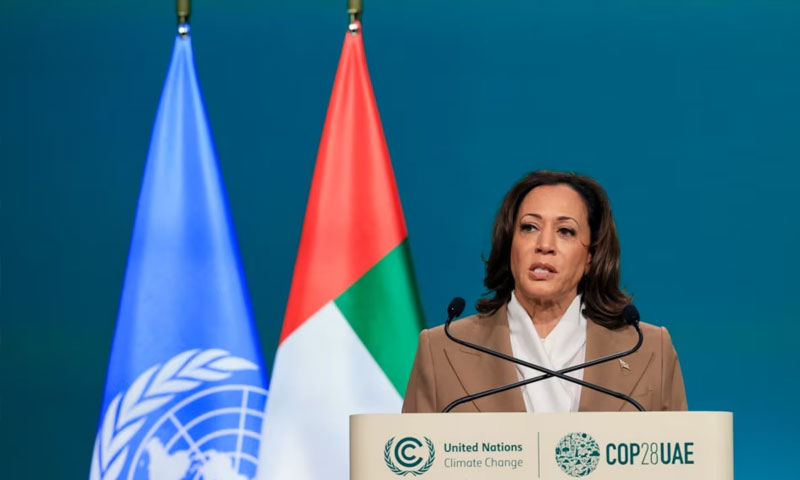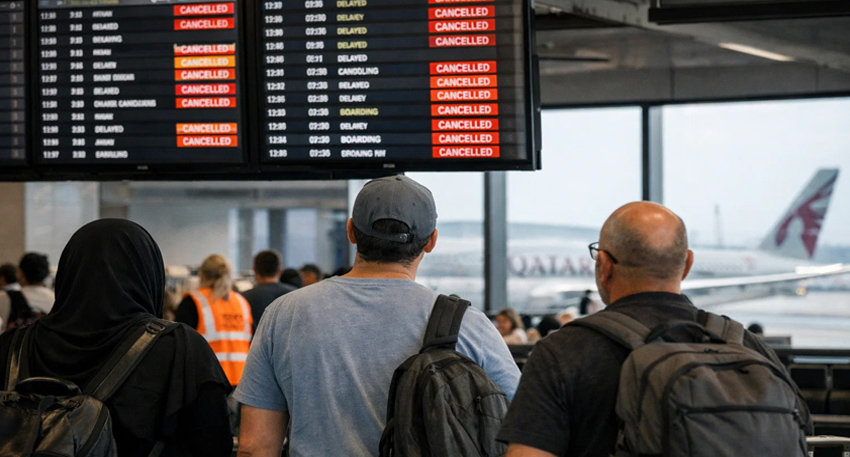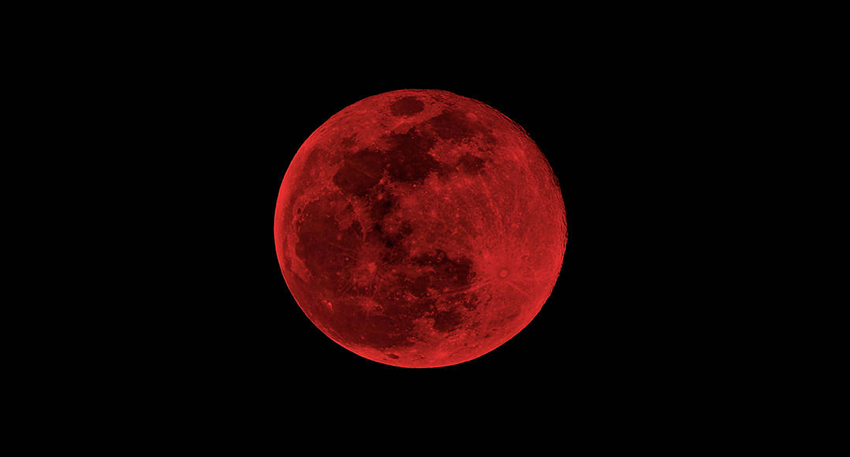
The report further says that Harris - who is now the likely Democratic presidential nominee - lambasted the civilian death toll, called on Israel to allow more aid into the territory, and spoke more forcefully and empathetically than President Biden about the Palestinian plight.
She has been careful not to publicly diverge from Biden’s staunch support of Israel. But she has often been the first high-ranking administration official to speak emphatically about civilian casualties, question the way Israel has prosecuted its war against Hamas and viscerally lay out the devastation in Gaza.
Her public speeches and comments have drawn the attention of voters who had vowed not to vote for Biden over his handling of the war but still fear a second Trump term.
But Harris has a difficult task ahead if she hopes to win back voters alienated by Biden’s handling of Gaza. As she runs for president, she will still serve as Biden’s vice president and must help carry out his foreign policy. And she must balance demands from progressives and young voters, who have called for an immediate and permanent cease-fire and a suspension of offensive weapons to Israel, with those of fiercely pro-Israel Americans, who remain an important part of the Democratic coalition.
Also read: WHO sees ‘high risk’ of polio virus spreading across Gaza
Her meeting later this week with Israeli Prime Minister Benjamin Netanyahu, who is visiting Washington, will offer an early indication of her strategy. She has already declined to preside over Netanyahu’s speech to Congress, which he is delivering at the invitation of Republican congressional leaders, citing a scheduling conflict.
Yet if Harris can strike the right balance, she could win back significant numbers of Arab Americans, Muslims and progressives who said they would not support the president — and chart a new path for Democrats on the Israeli-Palestinian conflict. That could make a difference for her in November, especially in Michigan, a critical battleground state with a large Arab and Muslim population where recent polls showed Biden trailing Donald Trump.
Harris’s aides and allies stress that she believes deeply in Israel’s right to defend itself, noting that she addresses it in every speech and that she has carried out the president’s foreign policy. But in several internal meetings and even in public remarks, Harris has raised the Palestinian viewpoint when she felt it was not being adequately considered in discussions and policymaking, multiple current and former White House officials told The Washington Post. Like some other people interviewed for this story, they spoke on the condition of anonymity to discuss private conversations and relay candid observations.
Also read: Israel tanks advance deeper in southern Gaza as more ceasefire talks expected
Arab and Muslim voters who had previously said they would not vote for Biden because of his continued military and diplomatic support of Israel despite tens of thousands of Palestinian deaths and the humanitarian disaster in Gaza have said they are open to Harris and in many cases waiting to see how she addresses the issue as a presidential contender.
“Even when the president says the right words, he does not come off as authentically empathetic towards the Palestinians. She does,” said a former White House official. “There’s no question she seems quite genuine in her concern for the suffering that the people in Gaza have endured.”
In Israel, where officials are highly sensitive to even mild criticism of the war effort, government officials worry that her remarks indicate she may not be as steadfast in her support of Israel’s fight against Hamas. Israeli officials perceive her as closer than Biden to the progressive wing of the Democratic Party, leading some to question whether she would be as resolute in her support of the Jewish state as the president, one senior Israeli security official close to the prime minister’s office said.
Observers said they would watch Harris’s meeting with Netanyahu for signs that she was tacking closer to, or further from, Biden’s position.
“The visit is very fortuitous for her,” said Michael Oren, who served as Israel’s ambassador to the United States during Biden’s first term as vice president. “This is an opportunity to present herself as a stateswoman and adopt a more centrist view.”
Biden has a decades-long emotional attachment to the Jewish state that has shaped his response to Israel’s war in Gaza, which is now entering its 10th month. Three days after Hamas militants stormed through the Israel-Gaza border on Oct. 7, killing 1,200 people and taking some 250 hostage, Biden delivered an address from the White House vowing unwavering support for Israel. The speech was commended by Jewish groups as one of the most pro-Israel speeches by a sitting U.S. president. Biden said he told Netanyahu if a similar attack had happened in the United States, the response would be “swift, decisive and overwhelming.”
Harris had suggested Biden add a line denouncing Islamophobia in addition to antisemitism, reminding him that bigotry dogged Arab American and Muslim communities for years after the Sept. 11, 2001, terrorist attacks. Biden took the suggestion, according to two White House officials.
More than 39,000 Palestinians have been killed by Israel’s assault, according to the Gaza Health Ministry, and Israel’s siege of the enclave has created a humanitarian catastrophe that has led to widespread starvation, unsanitary conditions that have spread disease and a collapse of the health-care system.
From the beginning of the war, Harris had taken a particular interest in planning for the “day after” Israel’s war in Gaza ended. “Of the many issues that were being dealt with, of the many lanes, she happened to focus and emphasize this lane,” one senior administration official said. “There was so much work to go around and she took a specific interest in this.”
Only days before the United Nations’ annual climate change conference at the end of November, White House officials decided Harris would go rather than Biden. The conference was being hosted in Dubai, and Harris decided she wanted to use the opportunity to address the war and meet face-to-face with Arab leaders, who at that point were not engaging in discussions about reconstruction in Gaza and were pressing the United States to pressure Israel to end its military campaign.
Harris delivered a speech about the war after meeting with the leaders of Egypt, the United Arab Emirates and Jordan. She laid bare the horrors of Oct. 7 and the importance of getting the remaining Israeli hostages home, but then turned to the deadly assault in Gaza and high rate of civilian casualties.
“As Israel defends itself, it matters how,” Harris said. “Too many innocent Palestinians have been killed. Frankly, the scale of civilian suffering and the images and videos coming from Gaza are devastating.”
The speech marked the first time that the United States said clearly and publicly at such a high level that Israel needed to do more to limit civilian casualties and that too many Palestinians had been killed — a sentiment that senior Biden officials discussed internally but had refrained from expressing publicly, according to two senior administration officials. Harris also laid out guidelines for a postwar Gaza that she had discussed in detail with key Arab leaders.
“The vice president felt we need to be more clear, more public, more out there to make this case publicly to the Israelis but in particular to the rest of the world,” one outside White House adviser said. “Biden’s inclination, because that’s the way he is, is ‘Give me the time, I will work this. I know Bibi, I’ve known him for 40 years, I can manage him.’ I think people, particularly Harris, over time felt, ‘You can’t manage him. This isn’t going to work.’”
Harris altered her remarks after receiving reports of the situation on the ground in Gaza, according to three White House officials. Harris was particularly disturbed by Israeli forces firing on Palestinians who rushed an aid convoy in northern Gaza, killing more than 100 people desperately trying to get food for their families — an incident U.S. officials said was “chaos of Israel’s own making.” She had also received reports of families trying to subsist on animal feed and leaves, and women delivering malnourished babies without proper medical care.
While Biden and other U.S. officials had spoken about starvation in Gaza, they had not done so in detail. Harris laid bare the specific details that stuck with her, adding: “What we are seeing every day in Gaza is devastating. … People in Gaza are starving. The conditions are inhumane. And our common humanity compels us to act.” She called on the Israeli government to lift restrictions on aid, saying there were “no excuses” for not doing so — a stark change in tone.
She then forcefully called for an “immediate cease-fire,” a line that was met with thunderous applause and cheers, before adding, “for at least the next six weeks, which is what is currently on the table.” Though Harris was repeating what Biden had called for days earlier, her impassioned delivery caught voters’ attention in states such as Michigan and elicited widespread news coverage. Biden’s aides took note of the enthusiastic response to her remarks, according to several people familiar with the dynamics.
A few weeks later, during a meeting at the White House with Arab Americans and Muslims in the middle of the Muslim holy month of Ramadan, meeting participants pressed Biden and Harris on what they characterized as Israel’s “brutal and horrific” response to Oct. 7 and asked the president why he was not doing more. Biden responded that nothing Israel had done matched the horrors of what Hamas had done on Oct. 7, according to a meeting participant, offending several in the room.
At the end of the meeting, Harris defended Biden, telling participants that he shared their concerns and that she had seen him take a tough stance with the Israelis on the issue of civilian casualties and humanitarian aid. “She made him look better than he made himself look in that meeting,” the meeting participant recalled.
But Israeli officials view Harris warily, four current and former Israeli officials said. She faced a backlash last month after she publicly mourned the more than 270 Palestinians “tragically killed” in an Israeli military operation that rescued four hostages held by Hamas since the Oct. 7 attacks. Her Selma speech and its explicit criticism of devastating conditions and civilian casualties also caught Israeli officials’ attention.
Such remarks are hardly out of step with other Biden administration officials. National security adviser Jake Sullivan also said that “innocent people were killed” in the June hostage rescue, and the Biden administration has tried for months to negotiate a halt in the fighting that would lead to the release of hostages.
Aside from public remarks, little in Harris’s record gives a clear indication of where she stands more broadly on policy toward Israel, which has only fueled anxiety about her candidacy, current and former Israeli officials said. Harris and Netanyahu have spent time together before she became vice president, but Harris lacks the close personal relationship to Netanyahu that Biden has forged over the years.
The uncertainty over Harris’s positions in some ways parallels Israeli worries about another Trump presidency. In interviews recently, members of the Israeli security and defense establishment called Trump unpredictable and worried that he could try to negotiate a cease-fire deal that ran counter to Israel’s interests and served his own. They said that Biden, by contrast, is resolutely supportive of Israel, despite his public criticism of Netanyahu and the military operation, and the person they hoped would prevail in November.
But Harris’s positioning on the issue could also bring advantages. Some of the voters who said they would not support Biden over his handling of Israel’s war in Gaza have said they are eager to see if and how Harris distinguishes herself from her boss.
“President Biden stepping down provides the Democratic Party with an opportunity to unite the coalition that ushered in Joe Biden’s historic presidency,” said Mayor Abdullah Hammoud of Dearborn, Mich., the city with the highest concentration of Arab Americans and Muslims in the country. “The question really falls back to the vice president.”
A majority of Democratic delegates have pledged to support Vice President Harris, signaling she is likely to secure the presidential nomination next month.
The story was first published in The Washington Post.




